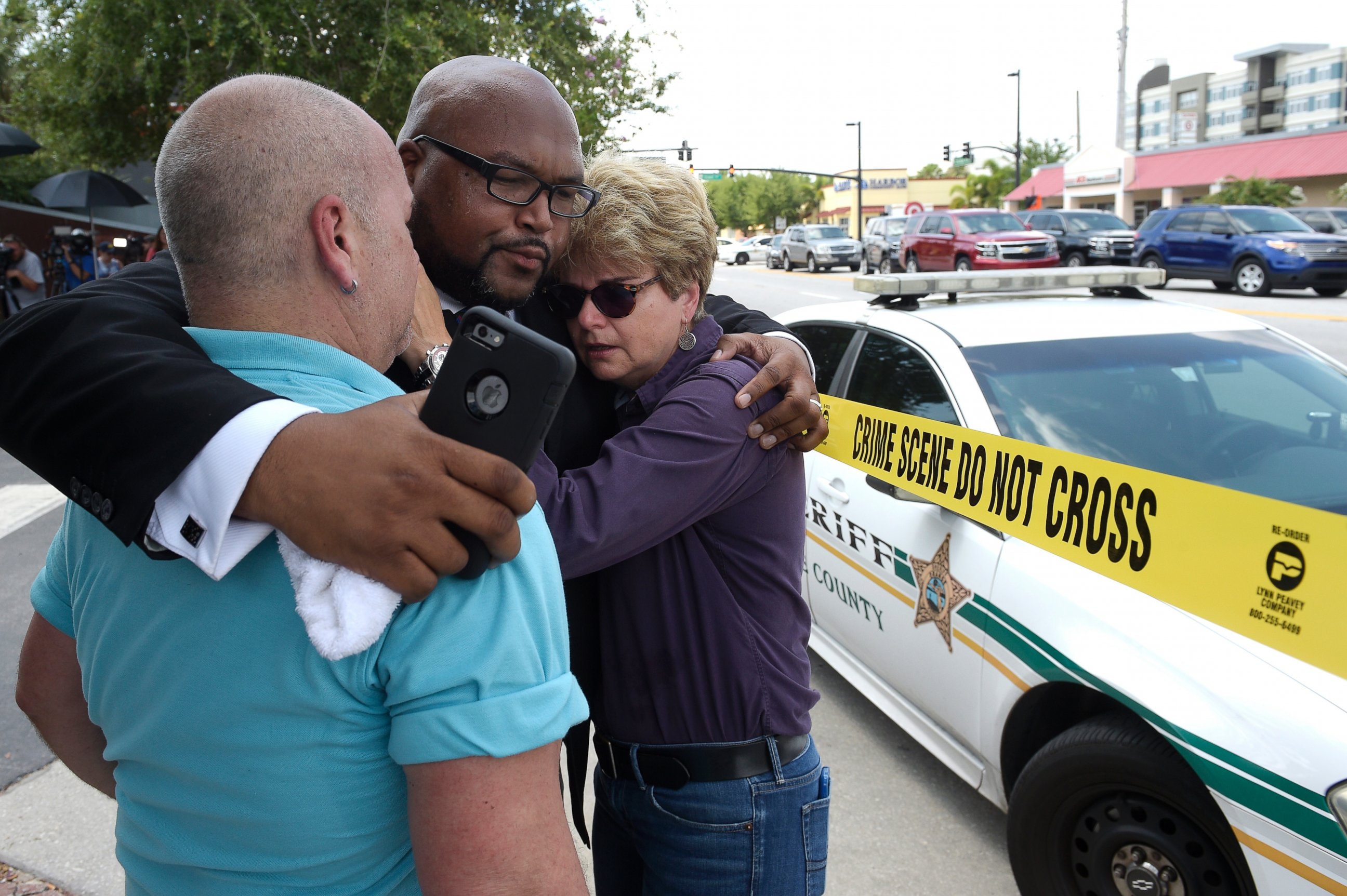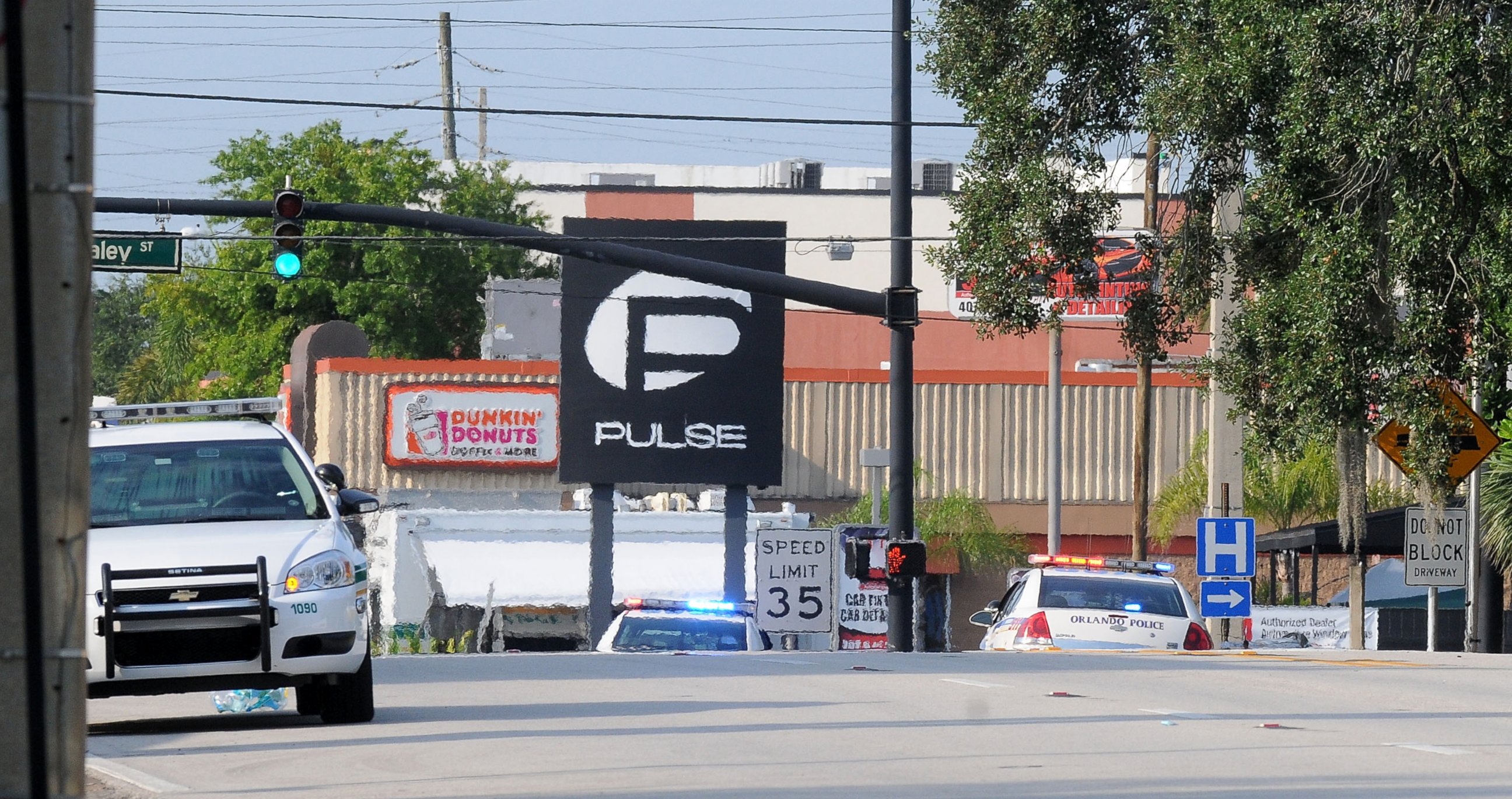Orlando LGBT Community Struggles to Comprehend Nightclub Shooting That Left at Least 50 Dead
Orlando's LGBT community was described as warm and supportive.
— -- Four years ago on a Wednesday night, highlighted by "$3 Long Island Ice Tea" drink specials, Sondra Rae Valentino, a lesbian, met her fiance at the nightclub Pulse in Orlando, Florida, the site of where at least 50 people were killed early Sunday morning in the worst mass shooting in U.S. history.
She described the atmosphere of the club on a normal night as warm and lively, the kind of place that the majority of the "large and supportive" LGBT community of central Florida frequented at different times of their lives. Today, she said, members of her community were experiencing a range of powerful emotions as people rushed to donate blood, support one another, and attempt to grapple with a horrific massacre that took place in a club that they loved.
"It scared us," Valentino told ABC News by phone about news of the massacre. "I'm afraid to go outside, because who knows what's going to happen?"
Connor Hachey, who identifies as gay, and works with Valentino as a host at Pride Radio Orlando, a digital radio station focused on the LGBT community of central Florida, and XL 106.7 in Orlando, a top 40 station, told ABC News that the LGBT community in his city was close-knit and vibrant, playing host to Gay Days Orlando, a popular festival that attracted visitors from across the country. He said that he had never experienced any intimidation in the city related to his identity, but had heard of rare occasions where other people did.
"I would say that everyone here just supports one another," Hachey said, while acknowledging that every LGBT community deals with some form of hate.
"What happened last night was just completely unexpected," Hachey said.
News of the massacre reached some people of the LGBT community in Orlando through Facebook, when the club's Facebook account posted a stark message with few details at a little after 2 a.m.
"Everyone get out of pulse and keep running," the post said.

Later in the night, people claiming to be survivors of the massacre posted accounts of what they saw, and people shared condolences in the thread.
A page on the club's website suggests that the nighclub's creation was a labor of love for Barbara Poma, who helped to co-found Pulse in 2004. She was introduced to the gay scene by her brother John, who later died after battling HIV, according to the website.
"Being raised in a strict Italian family, being gay was frowned upon. However, when John came out to his family and friends, the family dynamic transitioned from a culture of strict tradition to one of acceptance and love," Pulse's website says.
Pulse later was created in "an effort to keep her brother’s spirit alive."
Poma told ABC News' George Stephanopoulos today that she wasn't in town last night and was notified by one of the managers as to what was happening.
"We've never had any problems, we've never had any threats there. It's always been a place of acceptance and safety," Poma said. "Never, never in a million years could you ever see something so hateful happening in a place that has been nothing but a safe haven for the LGBT community in Orlando. It's not what we're about, ever."
June is Gay Pride month and events have been planned throughout the world in celebration of LGBT rights. Saturday night was "Latin night" at Pulse, which Valentino and Hachey said attracted a large crowd from central Florida's LGBT Hispanic community.
A police officer working at Pulse exchanged fire with Omar Mateen, identified by authorities as the perpetrator of the massacre, outside of the club at 2:02 a.m., officials said. Mateen then entered the club.
It turned into a hostage situation shortly thereafter, when Mateen took hostages inside. He was armed with an assault rifle, handgun and had "some kind of device on him," officials said. At approximately 5 a.m., the SWAT team made the decision to rescue the hostages, officials said.
Mateen was killed in a gunfight with those officers.

George Stephanopoulos of ABC News interviewed Christine Leinonen, the mother of Christopher Leinonen, a young man who went missing inside of the club at the time of the attack.
"Please, let's all try to get rid of the hatred and the violence," she said, sobbing.
Get real-time updates as this story unfolds. To start, just "star" this story in ABC News' phone app. Download ABC News for iPhone here or ABC News for Android here.




